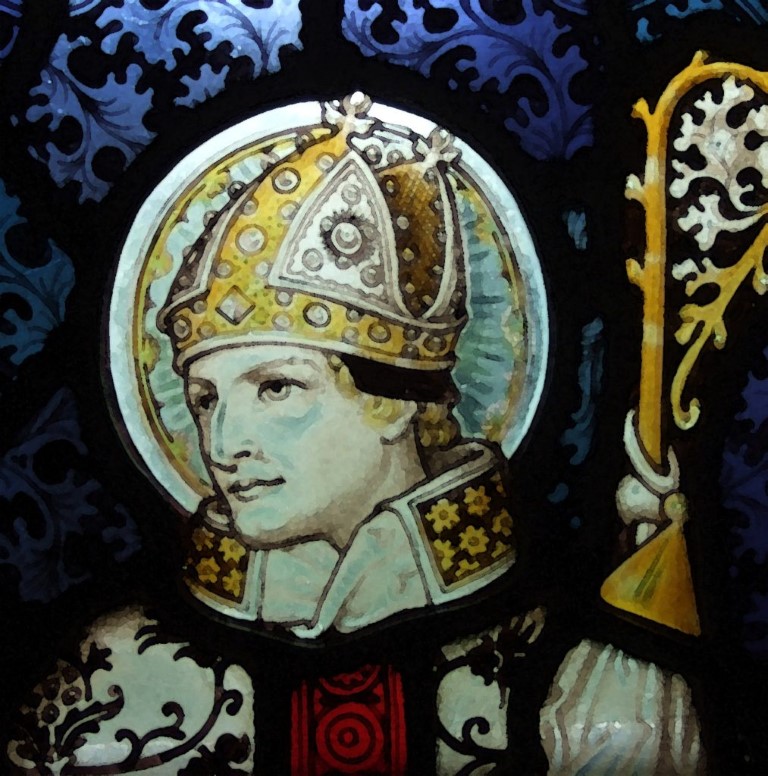– Anastasios
Saint Fulgentius of Ruspe was probably born in Carthage from a well off family in the year 478. He received a good education and so was addressed to a work in the administration. But the study of the Bible and of the writings by Saint Augustine made him think of entering a monastery and this is what he did, becoming abbot of the same monastery until the time he was sent away thanks to the Arian persecution. He was then consecrated Bishop of Ruspe but was then exiled by the Arian king Thrasimund. He died in 533.
As for other Christians of his time, as we have seen already, one of the main concerns of Fulgentius was the fight against heresies. About the last years of his life we read: “The exiles returned, and new consecrations took place for all the vacant sees. When the bishops landed at Carthage, Fulgentius had an enthusiastic reception, and his journey to Ruspe was a triumphal progress. He returned to his beloved monastery, but insisted on Felix being sole superior; and he, who was consulted first among all the bishops of the province, asked leave in the monastery for the least things from the abbot Felix. He delivered in writing to the abbey a deed by which it was perpetually exempted from the jurisdiction of the bishops of Ruspe. This document was read in the Council of Carthage of 534. It was in fact the custom in Africa that monasteries should not of necessity be subject to the local bishop, but might choose any bishop at a distance as their ecclesiastical superior. Fulgentius now gave himself to the care of his diocese. He was careful that his clergy should not wear fine clothes, or devote themselves to secular occupations. They were to have houses near the church, to cultivate their gardens with their own hands, and to be particular about correct pronunciation and sweetness in singing the psalms. He corrected some with words, others with scourging. He ordered fasting on Wednesdays and Fridays for all clergy and widows, and for those of the laity that were able. In this last period of St Fulgentius’s life he published some sermons, and ten books against the Arian Fabianus, of which only fragments remain. A year before his death he was moved to great compunction of heart; he suddenly quit all his work, and even his monastery, and sailed with a few companions to the island of Circe, where he gave himself to reading, prayer, and fasting in a monastery which he had previously caused to be constructed on a small rock. There he mortified his members and wept in the presence of God alone, as though he anticipated a speedy death. But complaints were made of his absence, and he returned to his labors. He shortly fell into a grievous sickness. In his sufferings he said ceaselessly: ‘O Lord, give me patience here, and forgiveness hereafter.’ He refused, as too luxurious, the warm bath which the physicians recommended. He summoned his clergy and in the presence of the monks asked pardon for any want of sympathy or any undue severity he might have shown. He was sick for seventy days, continuing in prayer and retaining all his faculties to the last. His possessions he gave to the poor, and to those of his clergy who were in need. He died on 1 January, 533, in the sixty-fifth year of his life and the twenty-fifth of his episcopate.” (Chapman, J. (1909). St Fulgentius. In The Catholic Encyclopedia: http://www.newadvent.org/cathen/06316a.htm).
Christian life is not comfortable or easy to take. As we have seen in Fulgentius and in many other saints, Christians have to tread the “narrow path,” with a life full of difficulties and challenges. In the time of Fulgentius the challenges were the ones of attacks to the doctrine of the Church from heresies, false beliefs that shattered the Church from outside and from inside. It is not very different in our time. So Christians should remain strong in the face of persecution from inside and from outside the Church. As Fulgentius, what was important, is to ask the grace of God to face with patience and endurance the many trials that life offers.


 Follow
Follow


